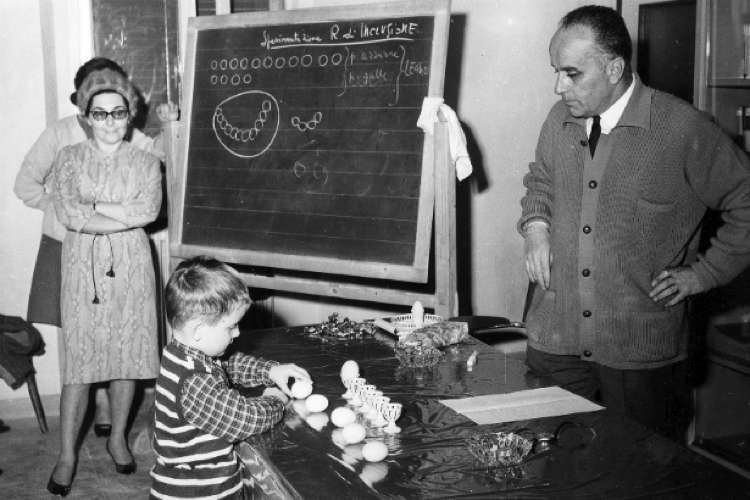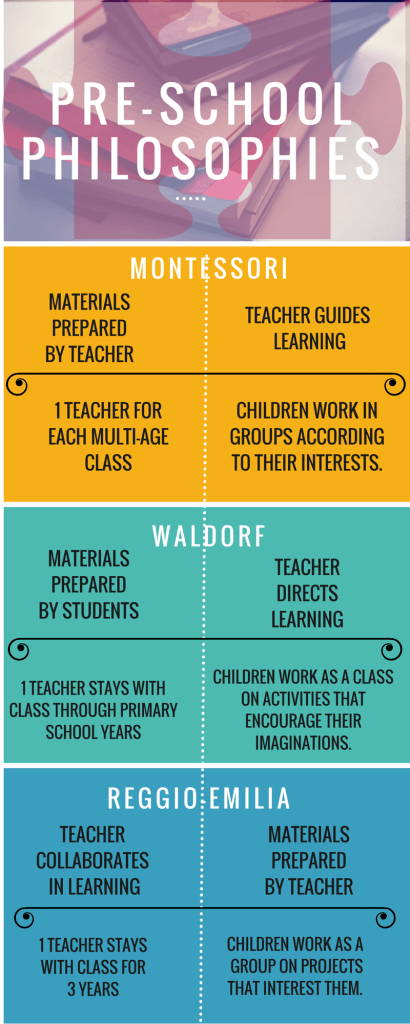Reggio Emilia

Loris Malaguzzi in a Reggio Emilia classroom. Source: The Atlantic
Also hailing from Italy is the third in the triad of preschool philosophies: Reggio Emilia. Named for the city where it was founded after the second World War, the methodology reflects the teachings of children, parents and community members who attempted to rebuild society after the war’s devastation.
The founder, Loris Malaguzzi, developed the philosophy from a parent’s cooperative and into a more widely accessible classroom method. While its popularity has remained predominantly in Europe and Asia, Reggio Emilia has also made the move to North America and Australia.
Reggio Emilia’s educational philosophy centers on the idea of family, with first priority given to children who have disabilities or social service needs. Unlike Montessori and Waldorf, the method is not strict; nor is it technically a formal model of education. Instead, it is a seen as a reference point for teachers to enrich and strengthen their vision for classroom teaching and engaging students.
Teachers stay with their class of students for three years, and engage in collaborative learning processes. Like the other two philosophies, Reggio Emilia relies heavily on the arts as a means of capturing students’ attention. It also requires daily participation of parents in learning, which is one major deviation from the other two models which, at most, expect parent participation in extracurricular activities only.
How Does War Impact Education?
While there are many differences among the three methods, one common thread is almost immediately visible: all were developed during times of war. Contemporary studies on the ways war affects education show that a child’s ability to receive or complete education is compromised in conflict-ridden countries.
That many of these historically inclusive, alternative schools are either absent from conflict-ridden countries or financially out of reach for many living within them not only offers us an apt example of irony, but seems to reflect the cultural shift toward the thought that education is a privilege — rather than a right.
For a more in-depth comparison of the three philosophies, check out the infographic below.

Source: Abby Norman





